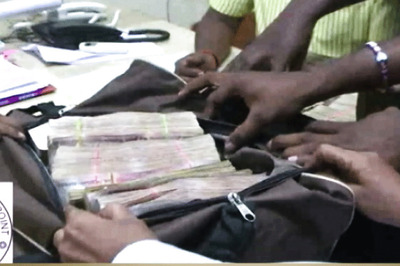
views
New Delhi: On May 13, 1998, then Prime Minister Atal Bihari Vajpayee called in the press for a brief statement. “Today at 1545 hours, India conducted three underground nuclear tests in the Pokhran range,” Vajpayee announced.
On Wednesday, a fortnight before the Lok Sabha elections, Prime Minister Narendra Modi addressed the nation to announce that India has become the fourth nation in the world after United States, China and Russia to demonstrate anti-satellite missile capability.
Jubilant BJP supporters were quick to dub the Anti-Satellite (A-SAT) tests, called 'Mission Shakti' as the “greatest military achievement since Pokhran” on social media websites.
Experts, however, believe that the test, while significant, was not on the same level as Pokhran – II, which was called Project Shakti.
In the ‘Mission Shakti’ announced by the PM on Wednesday, an anti-satellite (ASAT) weapon successfully targeted a live low earth orbit (LEO) satellite in space. The operation by the Defence Research and Development Organization (DRDO) and the Indian Space Research Organization (ISRO) destroyed the live satellite all in three minutes.
The satellite that has been destroyed was 300 kilometres away. This makes India one of the few countries to possess this technology.
Air defence expert Air Vice Marshall (Retired) Manmohan Bahadur said that while this was a significant development, this was by no means a quantum shift in security policy.
“There is a difference between space weaponisation and space militarization. Space has been militarized for years, but not weaponised. This is not new,” he said, adding, “In fact, it is not even new for India. India has had space militarisation capabilities for a long time. This includes satellites used for military purposes.”
A retired member of India’s security establishment told News18, “Any country that can put satellites in the earth’s orbit can send up military satellites, including espionage satellites. It is an open secret that India has been using satellites for espionage for years now.”
In 2007, China blew up a defunct satellite in its orbit, inviting global criticism. A concerned India then decided to spruce up its own space defence program.
In 2012, the Defence Research and Development Organization (DRDO) announced that India had developed capabilities to launch anti-satellite weapons but the government had not given its nod to conduct tests. Under Modi, that has changed.
The “new” development, said Bahadur, was that India has tested the A-SAT weapons.
While several nations, including Israel, have the missile range to militarize space space, only three nations – The United States, Russia and China - had hitherto tested ASAT systems by knocking down a satellite. On Wednesday, India joined that exclusive club.
This has prompted comparisons with Pokhran – II, which jettisoned India into the nuclear weapons club. Prime Minister Vajpayee’s popularity had soared after the tests and the BJP won the 1999 Lok Sabha elections.
Lt. Gen. (retd.) DS Hooda said these parallels were not fair. “This (Wednesday’s test) was certainly significant and should not be understated, but it is not a paradigm shift like Pokhran. It gave us a nuclear umbrella and gave us a level of deterrence that we had never had. Look at a country like North Korea. Half their country is starving and yet, they get a superpower like the US to sit with it on a table. That is simply because they have nukes. This is what India got after Pokhran.”
He added that what made Pokhran special was the circumstances under which it was conducted. “We faced the ire of the superpowers for it. We had sanctions put on us. India still chose to go ahead with the nuclear weapons program.”
But what is it that makes the ASAT tests significant? AVM (retd.) Manmohan Bahadur said, “It’s a demonstration, a show of strength. Any country that chooses to use satellite technology against India, including in espionage, will know that we can protect our assets. This is significant.”


















Comments
0 comment